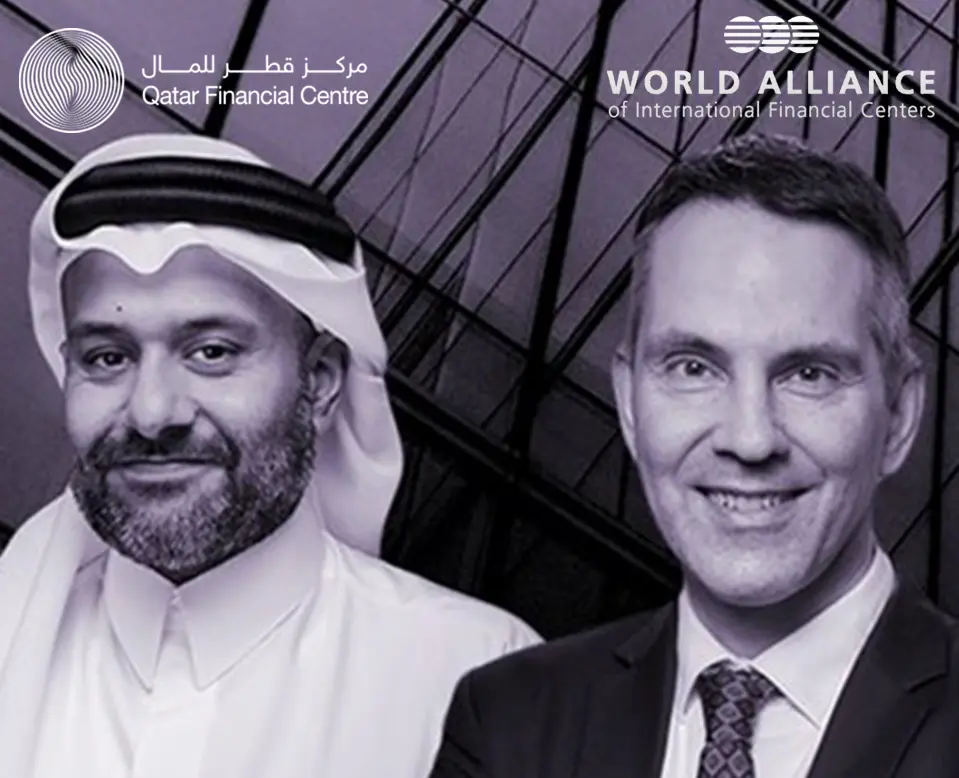
Increased collaboration among international financial center continue to strengthen economic recovery
Yousuf Al-Jaida, CEO of Qatar Financial Centre (QFC), and Jochen Biedermann, Managing Director of the World Alliance of International Financial Centers (WAIFC), share insights on the contribution of the international financial centers in supporting and reigniting economic recovery and how collaboration among the different financial centers play a role in making this possible.
As a global population, we were not ready for a pandemic. But as we look to come out of the COVID-19 crisis towards the end of 2021, we must be creative in the ways we adapt and recover.
With the world brought to its knees by the pandemic, attention is finally turning to global economic recovery. While the focus remains, rightly, on the short-term public health and wider economic needs, the medium to long-term challenges bring with it many opportunities. At the heart of these opportunities, is greater global cooperation.
Global cooperation is not a new concept. We have worked together on environmental and sustainability issues, health issues, all underpinned by financial commitment on behalf of national governments. The networks established before the pandemic have enabled the financial services industry to be prepared and lead the world out of the crisis by reigniting national economies.
The pandemic has shown that international collaboration can work. The global vaccination program and the efforts of governments and international organizations, working together in the US, Europe, Asia, and Africa to distribute vaccines around the world illustrates that we are stronger when we work together than on our own.
This is not the first time we have had to come together to think about how to deal with such challenges. Almost a decade and a half ago, the global financial crisis saw the world’s economy collapse, but more so we have seen challenges from health catastrophes, such as the SARS outbreak in South East Asia in the early 21st century.
It was obvious from March 2020 that the world would not return to how it was previously, and the financial services landscape would also change. As traditional industries suffered and some continue to face obstacles - and in some cases collapsed completely - it became clear that new markets would emerge and prosper, notably those within the digital and technological sectors.
The World Alliance of International Financial Centers (WAIFC) community came together to respond to the pandemic by issuing a joint declaration reaffirming its commitment to start-ups and SMEs in the short term to reignite the global economic recovery. By setting up joint-international working groups, WAIFC members ensured the financial centers' community is prepared for any setbacks in the medium term. WAIFC implored countries to scale up investments and continue the focus on developing digital infrastructures and emerging markets including Sustainable Finance, SME Finance, and FinTech.
An example of international collaboration forging a route to sustainable economic recovery is following the WAIFC AGM in 2020 – proudly hosted by the Qatar Financial Centre (QFC), which brought together members of the Alliance in a highly engaging virtual setting. WAIFC's working group, jointly led by QFC and Luxembourg for Finance (LFF), devised a seven-point action plan that focused on a comprehensive global policy agenda, highlighting the need for enhanced cybersecurity, sovereign support, and greater cooperation between banks and FinTechs to provide fast-paced solutions. There is a clear need for a legal framework to be created domestically and internationally, and cooperation between the international financial centers will only serve to speed up the process.
The pandemic has further enhanced prospects of open trade between different countries to help sustain national and global economies and avoid the “self-defeating lure of protectionism [1],” which has proved to be an unsuccessful approach in recent times. As proven by the first virtual AGM held in 2020 and the upcoming WAIFC gatherings, it was clear that members were aligned in their thinking that the need for collaboration was clear.
WAIFC's “Innovation and FinTechs in a Post-Pandemic World” [2] report put together and released by WAIFC, QFC, and LFF, exemplifies how cooperation between international financial centers and global partners can offer insights and solutions for a route out of the pandemic economically.
The report noted that many FinTechs faced a hard time on a number of fronts when the pandemic struck. After growing at a rate of more than 25% a year since 2014, the sector’s investment dropped by 11% globally and 30% in Europe in the first half of 2020. In addition, the pandemic crisis has exacerbated the stagnating low-interest environment, with central banks in Europe and the US cutting rates further to stabilize markets.
Fortunately, in many parts of the world, we have seen a strong rebound in FinTech founding in the 2nd half of 2020 and throughout 2021 so far. This has reaffirmed that a new growth horizon for FinTechs has been opening up as events in the pandemic unfold, further stressing the need for continued cross-border collaboration to ensure the opportunities arising are adequately captured.
As such, the focus must shift to how we as global partners promote and develop a sustainable financial industry, innovative trends in finance like artificial intelligence, financing of SMEs, and inclusive finance. Underpinning this collaboration is forward-thinking and fast-paced solutions, all of which can be provided by the FinTech sector, which is well-equipped to survive any environmental or health disaster, and as shown last year during the pandemic.
We are still some distance away from a full global economic recovery and the “new normal” means the perception and influence of some industries will change, and the world will not return to the way it was. Collaboration and developing international partnerships to create a digital banking infrastructure within the financial services industry that allows individuals and firms to keep their funds safe and secure is key to developing the global economic recovery.
[1] WAIFC promotes cooperation, sustainable investments, and avoiding protectionism during COVID-19

